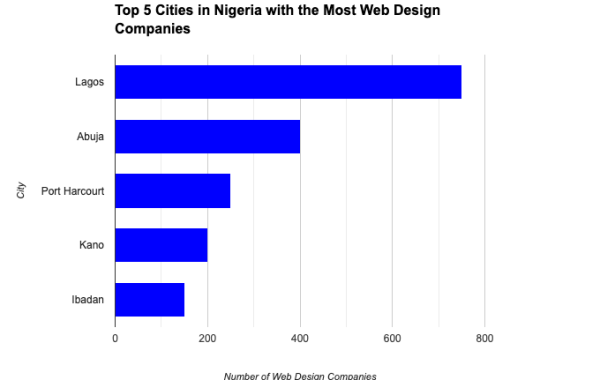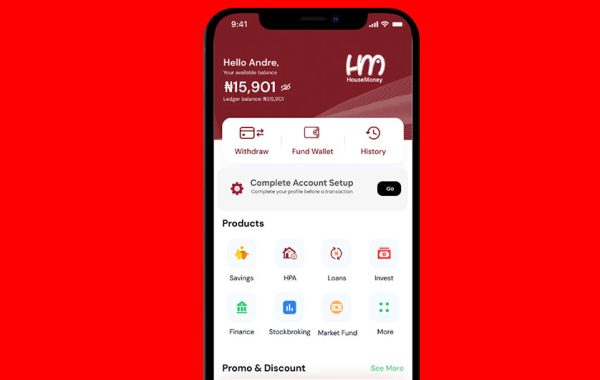In a country known for its vibrant culture and entrepreneurial spirit, Nigeria’s digital landscape has become a breeding ground for online businesses to thrive and unlock their true potential. With a population of over 200 million people and a rapidly growing internet penetration rate, the opportunities for entrepreneurs and businesses to make their mark in the online sphere are endless. From e-commerce platforms revolutionizing the way Nigerians shop to digital marketing agencies helping businesses reach their target audience, the digital revolution in Nigeria is reshaping the way business is done. This article delves into the success stories of online businesses in Nigeria, exploring the strategies they employ to navigate the unique challenges and capitalize on the immense opportunities that the digital landscape has to offer. Whether you’re an aspiring entrepreneur or a business owner looking to expand your online presence, this insightful exploration will provide you with valuable insights and inspiration to thrive in Nigeria’s digital ecosystem.
The growth of online businesses in Nigeria
Nigeria has witnessed a remarkable growth in online businesses over the past decade. The rise of internet access and the proliferation of smartphones have played a significant role in this transformation. The convenience and accessibility of online platforms have attracted entrepreneurs from various sectors, leading to the emergence of a vibrant online business community. From fashion retailers to food delivery services, online businesses are catering to the diverse needs of Nigerians, offering convenience, competitive pricing, and a wide range of products and services.
The growth of online businesses in Nigeria can be attributed to several factors. Firstly, the sheer size of the population presents a massive market for online businesses to tap into. With over 200 million people, Nigeria offers a vast customer base that is hungry for innovative solutions and convenient shopping experiences. Secondly, the increasing internet penetration rate has made it easier for businesses to reach their target audience. As more Nigerians gain access to the internet, online businesses have the opportunity to expand their reach and connect with potential customers across the country.
However, the growth of online businesses in Nigeria has not been without its challenges. The unique characteristics of the Nigerian market, such as logistics infrastructure, payment options, and trust issues, pose significant hurdles for online businesses to overcome. Despite these challenges, successful online businesses have found ways to navigate the landscape and thrive.
Advantages of starting an online business in Nigeria
Starting an online business in Nigeria offers several advantages that make it an attractive option for entrepreneurs. One of the key advantages is the low cost of entry. Compared to traditional brick-and-mortar businesses, setting up an online business requires minimal capital investment. With a laptop, internet connection, and a compelling business idea, entrepreneurs can launch their online venture and start reaching customers in no time.
Another advantage of starting an online business in Nigeria is the flexibility it offers. Online businesses allow entrepreneurs to work from anywhere, at any time. This flexibility is particularly beneficial in a country like Nigeria, where traffic congestion and long commuting times are common. By operating online, entrepreneurs can eliminate the need for physical retail spaces and focus on growing their business without the limitations of a fixed location.
Additionally, online businesses in Nigeria have the potential to scale rapidly. With the right strategies and marketing tactics, entrepreneurs can reach a large customer base and expand their business exponentially. The digital landscape in Nigeria provides ample opportunities for online businesses to grow and thrive, making it an exciting time to be part of the online business ecosystem.
Challenges faced by online businesses in Nigeria
While the growth of online businesses in Nigeria is promising, it is not without its challenges. One of the major challenges faced by online businesses is the inadequate logistics infrastructure. Delivering products to customers in a timely and efficient manner can be a significant challenge, especially in a country with limited road networks and unreliable transportation services. This logistical challenge often leads to delays in product delivery and dissatisfied customers.
Another challenge faced by online businesses in Nigeria is the issue of trust. Building trust with customers is crucial for the success of any online business, but it can be particularly challenging in Nigeria. Due to the prevalence of online scams and fraudulent activities, many Nigerians are skeptical about making online purchases or sharing personal information online. Overcoming this trust barrier requires online businesses to invest in robust security measures, transparent communication, and excellent customer service.
Furthermore, the limited options for online payment in Nigeria pose a challenge for online businesses. While cash on delivery is a popular payment method, it can be risky for businesses as it leaves room for fraudulent orders and unpaid deliveries. Online businesses must navigate the complex landscape of payment options in Nigeria and offer secure and convenient payment solutions to their customers.
Despite these challenges, successful online businesses in Nigeria have found ways to overcome them and thrive in the digital landscape. By understanding the unique characteristics of the market and implementing effective strategies, online businesses can position themselves for success.
Strategies for success in Nigeria’s digital landscape
To succeed in Nigeria’s digital landscape, online businesses must employ effective strategies tailored to the unique characteristics of the market. Here are some key strategies that have proven to be successful for online businesses in Nigeria:
1. **Localization:** Understanding the local culture and tailoring products, services, and marketing messages to resonate with Nigerian customers is crucial. Localization goes beyond language translation and involves adapting to local customs, preferences, and trends.
2. **Robust logistics:** Investing in a reliable logistics network is essential for timely product delivery. Online businesses can partner with logistics companies that have a strong presence and track record in Nigeria to ensure smooth operations and customer satisfaction.
3. **Building trust:** Establishing trust with customers is vital for the success of online businesses in Nigeria. This can be achieved through transparent communication, secure payment options, and excellent customer service. Online businesses should prioritize building long-term relationships with their customers to foster trust and loyalty.
4. **Leveraging social media:** Nigeria has a high social media penetration rate, making it an ideal platform for online businesses to reach their target audience. By leveraging social media platforms such as Facebook, Instagram, and Twitter, businesses can engage with customers, showcase their products, and drive sales.
5. **Optimizing for mobile:** As mobile penetration continues to grow in Nigeria, online businesses must optimize their websites and platforms for mobile devices. Mobile-friendly interfaces and fast-loading websites are essential to provide a seamless user experience and capture the attention of mobile-savvy Nigerians.
By implementing these strategies and staying adaptable to the evolving digital landscape, online businesses in Nigeria can position themselves for success and unlock their true potential.
The role of e-commerce platforms in supporting online businesses
E-commerce platforms have played a pivotal role in supporting the growth of online businesses in Nigeria. These platforms provide entrepreneurs with a ready-made infrastructure to showcase and sell their products or services. By listing their products on e-commerce platforms, businesses gain access to a large customer base, secure payment options, and logistics support.
One of the most prominent e-commerce platforms in Nigeria is Jumia. With millions of monthly visitors, Jumia has become a go-to platform for Nigerians looking to shop online. By partnering with Jumia, online businesses can leverage the platform’s extensive reach and established brand to boost their sales and visibility.
Another popular e-commerce platform in Nigeria is Konga. Konga offers a wide range of products, from electronics to fashion, and provides a seamless shopping experience for customers. Online businesses can benefit from Konga’s strong logistics network and secure payment options to streamline their operations and deliver a superior customer experience.
In addition to these established e-commerce platforms, there is also a growing trend of niche-specific platforms catering to specific industries. For example, online fashion businesses can leverage platforms like Dressmeoutlet and Payporte to reach fashion-conscious Nigerians and showcase their unique products.
Overall, e-commerce platforms have democratized online business in Nigeria, providing entrepreneurs with the tools and infrastructure to thrive in the digital landscape. By partnering with these platforms, online businesses can tap into a vast customer base, streamline their operations, and focus on delivering exceptional products and services.
Digital marketing tactics for Nigerian online businesses
In a crowded digital landscape, effective digital marketing tactics are essential for Nigerian online businesses to stand out and reach their target audience. Here are some tactics that have proven to be successful:
1. **Search Engine Optimization (SEO):** Optimizing websites and content for search engines is crucial for online businesses to rank higher in search results and drive organic traffic. By conducting keyword research, creating high-quality content, and building backlinks, businesses can improve their visibility and attract relevant customers.
2. **Social media marketing:** Leveraging social media platforms such as Facebook, Instagram, and Twitter is an effective way to engage with customers, build brand awareness, and drive sales. By creating compelling content, running targeted ads, and engaging with followers, online businesses can build a loyal customer base and generate leads.
3. **Influencer marketing:** Collaborating with influencers who have a strong following in Nigeria can help online businesses reach a wider audience and build credibility. By partnering with influencers who align with their brand values, businesses can leverage their social media presence to promote products, drive sales, and increase brand awareness.
4. **Email marketing:** Building an email list and sending targeted email campaigns is an effective way to nurture leads, drive repeat purchases, and build customer loyalty. By offering valuable content and personalized offers, online businesses can keep their customers engaged and encourage them to make repeat purchases.
5. **Content marketing:** Creating high-quality, relevant, and valuable content is essential for online businesses to establish thought leadership, build brand authority, and attract organic traffic. By publishing blog articles, videos, and infographics, businesses can position themselves as industry experts and provide value to their target audience.
6. **Paid advertising:** Running targeted ads on platforms like Google Ads, Facebook Ads, and Instagram Ads can help online businesses reach their target audience and drive conversions. By setting clear goals, optimizing ad campaigns, and tracking key metrics, businesses can maximize their return on investment and grow their customer base.
By implementing these digital marketing tactics and continuously monitoring and optimizing their strategies, Nigerian online businesses can effectively reach their target audience, drive engagement, and achieve their business goals.
Payment options for Nigerian online businesses
Offering secure and convenient payment options is crucial for the success of online businesses in Nigeria. While cash on delivery (COD) is a popular payment method, it comes with its own set of challenges, such as fraudulent orders and unpaid deliveries. To address these challenges and provide a seamless payment experience, online businesses can explore alternative payment options. Here are some popular payment options in Nigeria:
1. **Bank transfers:** Bank transfers are a common payment method in Nigeria. Online businesses can provide customers with their bank account details, and customers can make payments through online banking or mobile banking apps. This method is convenient for customers who prefer to make direct transfers from their bank accounts.
2. **Mobile money:** Mobile money services like MTN Mobile Money, Airtel Money, and Paga have gained popularity in Nigeria. These services allow customers to make payments using their mobile phones, eliminating the need for cash or physical cards. Online businesses can integrate mobile money payment options into their platforms to offer convenience and security to their customers.
3. **Online payment gateways:** Online payment gateways like Flutterwave, Paystack, and Interswitch provide secure and convenient payment options for online businesses. These payment gateways support various payment methods, including card payments, bank transfers, and mobile money. By integrating these payment gateways into their websites or platforms, businesses can offer a wide range of payment options to their customers.
4. **Cryptocurrency:** Cryptocurrency is gaining traction as a payment method in Nigeria. Online businesses can explore accepting popular cryptocurrencies like Bitcoin or Ethereum as an alternative payment option. This option appeals to tech-savvy customers and offers additional security and privacy.
By offering diverse payment options and ensuring a seamless payment experience, online businesses in Nigeria can build trust with their customers, increase conversion rates, and drive customer loyalty.
Case studies of successful online businesses in Nigeria
To provide real-world examples of success in Nigeria’s digital landscape, let’s explore two case studies of online businesses that have thrived:
### Case Study 1: Jumia
Jumia, often referred to as the “Amazon of Africa,” is one of Nigeria’s most successful online businesses. Founded in 2012, Jumia has revolutionized the way Nigerians shop by offering a wide range of products, secure payment options, and reliable delivery services. By partnering with local sellers and leveraging its extensive logistics network, Jumia has become a one-stop-shop for Nigerians looking to purchase everything from electronics to fashion items. Jumia’s success can be attributed to its focus on customer experience, innovative marketing campaigns, and continuous improvement of its platform.
### Case Study 2: Printivo
Printivo is an online print shop that enables individuals and businesses to design and order custom print products. From business cards to flyers and banners, Printivo offers a user-friendly platform that allows customers to create personalized designs and have them printed and delivered. By tapping into the growing demand for customized print products in Nigeria, Printivo has carved a niche for itself and built a loyal customer base. Printivo’s success can be attributed to its focus on quality, affordable pricing, and excellent customer service an online business in nigeria
These case studies highlight the diverse range of online businesses that have thrived in Nigeria’s digital landscape. By understanding their target audience, delivering exceptional customer experiences, and continuously adapting to market trends, these businesses have been able to unlock their true potential and achieve success.
Opportunities for future growth in Nigeria’s digital landscape
The future of online businesses in Nigeria is full of exciting opportunities. As internet penetration continues to grow and more Nigerians gain access to smartphones, the potential customer base for online businesses will expand further. Additionally, advancements in technology, such as 5G networks and faster internet speeds, will enable online businesses to deliver richer experiences and engage with customers in new and innovative ways.
The rise of fintech in Nigeria presents another significant opportunity for online businesses. With the increasing adoption of mobile money services and the emergence of digital banking solutions, online businesses can leverage these platforms to offer seamless payment options and improve the overall customer experience.
Moreover, the growth of social commerce presents a promising opportunity for online businesses. Social media platforms are increasingly integrating e-commerce features, allowing businesses to sell products directly to customers without leaving the social media app. By leveraging social commerce, online businesses can reach a wider audience, increase brand visibility, and drive sales.
In conclusion, Nigeria’s digital landscape offers immense opportunities for online businesses to thrive and unlock their true potential. By understanding the unique characteristics of the market, employing effective strategies, and staying adaptable, entrepreneurs can navigate the challenges and capitalize on the growing demand for online business in nigeria









